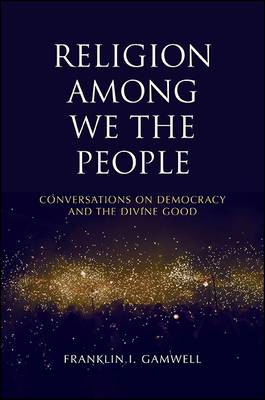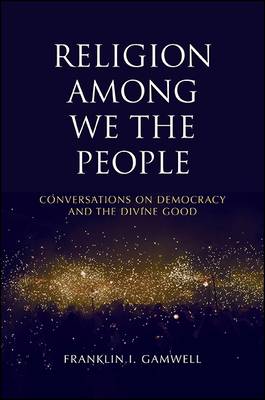
- Afhalen na 1 uur in een winkel met voorraad
- Gratis thuislevering in België vanaf € 30
- Ruim aanbod met 7 miljoen producten
- Afhalen na 1 uur in een winkel met voorraad
- Gratis thuislevering in België vanaf € 30
- Ruim aanbod met 7 miljoen producten
Religion Among We the People
Conversations on Democracy and the Divine Good
Franklin I GamwellOmschrijving
Explores democracy with religious freedom and its dependence on theism.
Franklin I. Gamwell holds that democracy with religious freedom is dependent on metaphysical theism. Democratic politics can be neutral to all religious convictions only if its constitution establishes a full and free discourse about the ultimate terms of justice and their application to decisions of the state, and the divine good is the true ground of justice. Notably, Gamwell's view challenges virtually all current accounts of democracy with religious freedom. This uncommon position emerges through a series of essays in which Gamwell engages a variety of conversation partners, including Thomas Jefferson, David Strauss, Abraham Lincoln, Jürgen Habermas, Alfred North Whitehead, Reinhold Niebuhr, and Iris Murdoch. Discussions of Jefferson, Lincoln, and the US Constitution illustrate the promise of neoclassical metaphysics as a context for interpreting US history. Gamwell then defends his metaphysics against both modern refusals of metaphysics and accounts of ultimate reality offered by Niebuhr and Murdoch.
Specificaties
Betrokkenen
- Auteur(s):
- Uitgeverij:
Inhoud
- Aantal bladzijden:
- 256
- Taal:
- Engels
Eigenschappen
- Productcode (EAN):
- 9781438458083
- Verschijningsdatum:
- 2/07/2016
- Uitvoering:
- Paperback
- Formaat:
- Trade paperback (VS)
- Afmetingen:
- 152 mm x 226 mm
- Gewicht:
- 362 g

Alleen bij Standaard Boekhandel
Beoordelingen
We publiceren alleen reviews die voldoen aan de voorwaarden voor reviews. Bekijk onze voorwaarden voor reviews.









